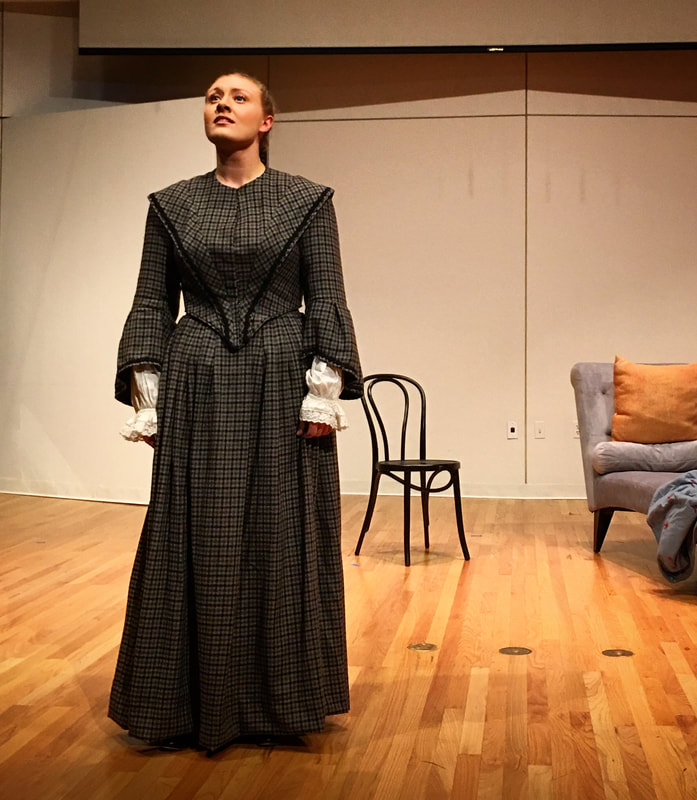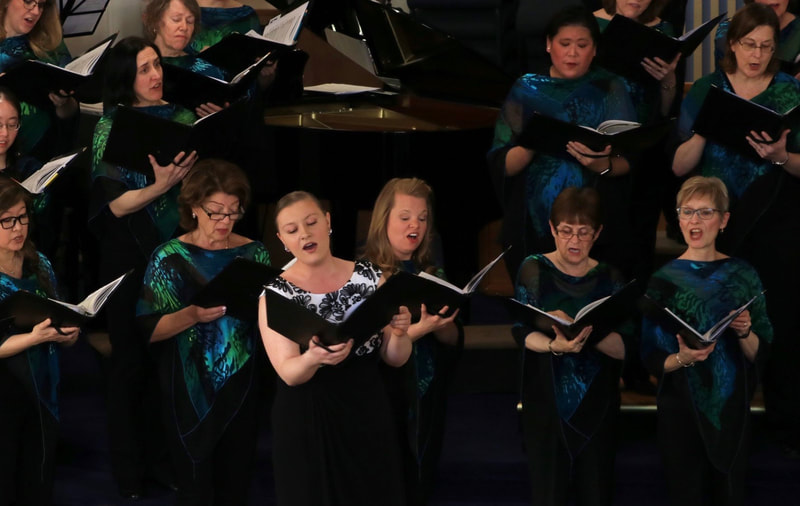By Clara Chalmers
Mere moments before the annual Collingwood basketball game - the bleachers creaking beneath the weight of students, teachers, and parents, weighty with anticipation. Small talk stagnates across the crowd. Eyes glance at the far wall; lined by members of the Cavalier team. But, before the game can start in a heady jumble of sneaker squeaks, buzzers, and cheers - a single student steps across the gym. She is clad in a Collingwood blazer, in her hand, she holds a microphone, which she draws to her mouth. The student takes a breath - and exhales. “O Ca - na - da.” Her voice fills the vastness. High - piercing the gym and the now silent crowd, who stands, stumbling through the lines. The voice - now so immense it can no longer be attributed to that single, microphone bearing student - guides and unifies the mumbles. Two minutes later, the anthem ends - the audience fall back into their seats.
The moment is over.
Singing the Canadian anthem is a hallmark of all Collingwood gatherings. A tradition worn from repetition - begrudgingly belted out by students awaiting the more.
For Tabitha Brasso-Ernst, chosen to sing the anthem in her grade eleven year, the moment marked the first time she performed solo -foreshadowing her career as a Mezzo-Soprano. The feeling, we can imagine, was exhilarating. For a couple moments, her voice consumed the crowd. Dominated the space. Intoxicated by this sensation, she thereafter inundated herself in the Collingwood music scene; partaking in concert choir, chamber choir, senior vocal jazz, the Headmaster 500 Rockband Class, as well as the spring musicals. From this fertile foundation, her career bloomed. In 2015, fresh from her university degree in classical voice, English literature, and drama, she garnered a silver medal in the Canadian Music Competition. Several years later, at only 25, Tabitha debuted as a solo singer in a full orchestra.
It was in these little moments of triumph - her first successful solo, her silver medal - that founded her passion. According to Tabitha, her youth is speckled with portents; dominated by an indefatigable pull to pursue music. She terms these as ‘signs from the universe’ and bids all to pay attention to such auguries, and to absorb the lessons offered by each brush with fate. For example, Tabitha recalls a piano concert - she was nine years old, benumbed with nervousness as she stepped on stage, poised to announce the title of the piece she would imminently play. Her mind blanked - silence distended across the audience, until, several beats later, she remembered the title, though not before. Despite this, Tabitha won the competition. The memory now serves as a reminder to retain focus.
Despite her belief in serendipity, Tabitha also values hard work. She carved success from a path strewn with obstacles; armed by a conviction to perform her best. Her talent, thus, can be observed on stage - her dedication, however, is apparent rather in the time she invests outside of concerts; days devoted to translating lyrics, reviewing rhythms, memorizing, and perfecting technique. Musicians are composed not purely of talent, but practice - time set diligently away to “replenish” their talent. Tabitha’s work ethic was implanted by her mother - who enrolled her in classical piano at the age of five. She encouraged her daughter to continue playing for seven years - sensing. Music was her fate.
Mere moments before the annual Collingwood basketball game - the bleachers creaking beneath the weight of students, teachers, and parents, weighty with anticipation. Small talk stagnates across the crowd. Eyes glance at the far wall; lined by members of the Cavalier team. But, before the game can start in a heady jumble of sneaker squeaks, buzzers, and cheers - a single student steps across the gym. She is clad in a Collingwood blazer, in her hand, she holds a microphone, which she draws to her mouth. The student takes a breath - and exhales. “O Ca - na - da.” Her voice fills the vastness. High - piercing the gym and the now silent crowd, who stands, stumbling through the lines. The voice - now so immense it can no longer be attributed to that single, microphone bearing student - guides and unifies the mumbles. Two minutes later, the anthem ends - the audience fall back into their seats.
The moment is over.
Singing the Canadian anthem is a hallmark of all Collingwood gatherings. A tradition worn from repetition - begrudgingly belted out by students awaiting the more.
For Tabitha Brasso-Ernst, chosen to sing the anthem in her grade eleven year, the moment marked the first time she performed solo -foreshadowing her career as a Mezzo-Soprano. The feeling, we can imagine, was exhilarating. For a couple moments, her voice consumed the crowd. Dominated the space. Intoxicated by this sensation, she thereafter inundated herself in the Collingwood music scene; partaking in concert choir, chamber choir, senior vocal jazz, the Headmaster 500 Rockband Class, as well as the spring musicals. From this fertile foundation, her career bloomed. In 2015, fresh from her university degree in classical voice, English literature, and drama, she garnered a silver medal in the Canadian Music Competition. Several years later, at only 25, Tabitha debuted as a solo singer in a full orchestra.
It was in these little moments of triumph - her first successful solo, her silver medal - that founded her passion. According to Tabitha, her youth is speckled with portents; dominated by an indefatigable pull to pursue music. She terms these as ‘signs from the universe’ and bids all to pay attention to such auguries, and to absorb the lessons offered by each brush with fate. For example, Tabitha recalls a piano concert - she was nine years old, benumbed with nervousness as she stepped on stage, poised to announce the title of the piece she would imminently play. Her mind blanked - silence distended across the audience, until, several beats later, she remembered the title, though not before. Despite this, Tabitha won the competition. The memory now serves as a reminder to retain focus.
Despite her belief in serendipity, Tabitha also values hard work. She carved success from a path strewn with obstacles; armed by a conviction to perform her best. Her talent, thus, can be observed on stage - her dedication, however, is apparent rather in the time she invests outside of concerts; days devoted to translating lyrics, reviewing rhythms, memorizing, and perfecting technique. Musicians are composed not purely of talent, but practice - time set diligently away to “replenish” their talent. Tabitha’s work ethic was implanted by her mother - who enrolled her in classical piano at the age of five. She encouraged her daughter to continue playing for seven years - sensing. Music was her fate.
Tabitha’s career, indeed, seems rooted in this concept of fate - of the other-worldly. She performs classical pieces, such as an oratorio by Franz Joseph Hayden called “the seven last words of Christ” she will perform in an upcoming concert. Tabitha is a dramatist. Her role; to breathe life into the musty scores of operas - written in a time rank with the stamp of antiquity. She enlivens pieces by affixing her own experiences, and feelings, to ancient stories. Her talent thus matures as she grows; garnering more worldliness, and encountering a greater gradations of emotion. Her website shows stills captured from her performances; clad in a black dress, face etched with feeling. She is a thespian. Diffused through song, her emotions are richer; intense, and intoxicating. She aims to “lose herself” in these pieces; to scrape past the superficial, and “dig deep into my soul.” She describes performances like a great feat of endurance; aking, perhaps, to her newfound passion for boxing. The sport, like music, consumes a person. Both necessitate the participant to invest themselves fully - and engage every particle of their being.
Despite the seeming combustion of emotion occurring on stage, Tabitha also aspires to infuse her performances with grace. A precision - a poise - found, for example, in opera singer Renee Flemming. Tabitha describes her idol as someone elegant, yet brimming with modesty. This is another attribute she aspires towards.
Tabitha, hence, sings not solely to enrich her own emotional capacity - but that of her audience. She is the median between scores on a page and the present day. Her aim; to bequeath the essence of a song to her listeners. To inundate them in emotion. To move them.
Despite the seeming combustion of emotion occurring on stage, Tabitha also aspires to infuse her performances with grace. A precision - a poise - found, for example, in opera singer Renee Flemming. Tabitha describes her idol as someone elegant, yet brimming with modesty. This is another attribute she aspires towards.
Tabitha, hence, sings not solely to enrich her own emotional capacity - but that of her audience. She is the median between scores on a page and the present day. Her aim; to bequeath the essence of a song to her listeners. To inundate them in emotion. To move them.



